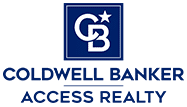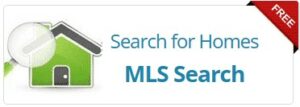Know Your Home Mortgage Loans – Make Home Buying Easier

The first consideration that you need to make when purchasing real estate is the kind of home mortgage loan that you need to take out. Financing of your mortgage loans is a very important factor in deciding how easily you will be able to pay back your mortgage. Depending upon your financial condition and other obligations you can avail various types of mortgage loans to help you with paying back your mortgage easily. Read on to know your mortgage loans available or follow the link for even more detailed home buyer tips.
Types of Home Mortgages
Have you always wanted to purchase your own home? Unless you can pay for your home entirely in cash, then you will know how important it is to find the best home mortgage to assist in your purchase. Since you will be fulfilling that loan over a long period, it’s critical that you look for a loan that suits your needs and budget.
Borrowers who can provide a substantial down payment, a good credit score, and financial and employment stability can get a conventional loan. Borrowers who do not have the financial capacity to qualify for a conventional loan can go for government-insured loans. For borrowers who want less risk and plan on living in a home for many years can get a fixed-rate mortgage. Homeowners who want to pay less interest can achieve equity faster with larger monthly payments in an adjustable-rate mortgage.
If you are still unsure which loan is best for you, keep reading!
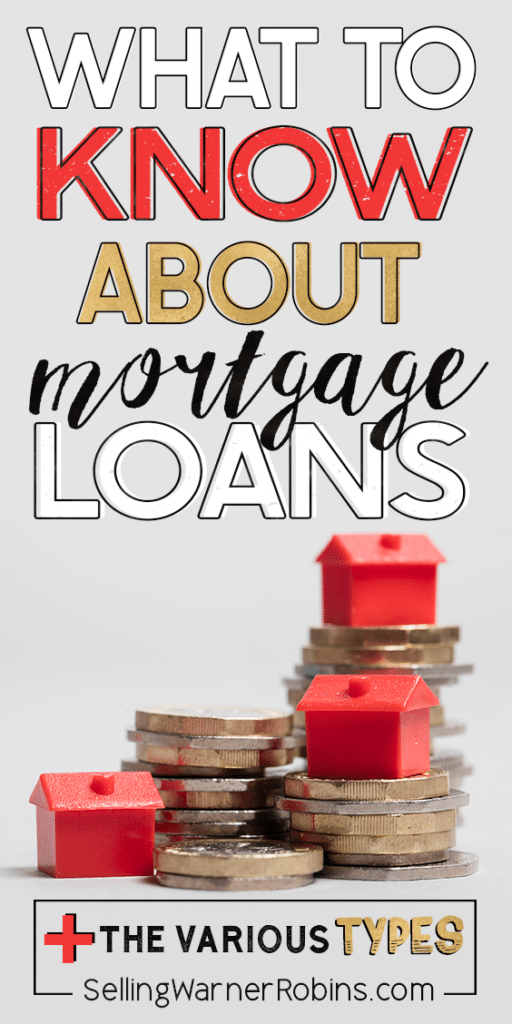
What is a Home Mortgage?
A home mortgage is a loan given by a mortgage company, bank, or other financial institution for the purchase of a residence, including primary, secondary, and investment residences. Home mortgages exclude commercial and industrial properties.
In a home mortgage, the borrower (homeowner) transfers the title of the property to the lender on the condition that the title will be returned to the homeowner once the final loan payment has is complete and the mortgage terms have been met.
There are two components of a mortgage payment:
- Principal: Refers to the loan amount
- Interest: Refers to the additional amount charged by the lender for allowing borrowers to repay the loan over time. Interest is calculated at a specified percentage of the principal.
What are the Main Types of Home Mortgages?
Before you get started on the home buying process, you should know that not all mortgages are created equal. Lenders will require different down payments, interest rates, and guidelines to certify that you’re qualified for a mortgage.
As a home buyer, it is critical that you find the best one that fits your financial capacity.
While loan guidelines will ultimately depend on your lender, here are 5 of the home mortgages you will likely come across:
Conventional Loan
Conventional loans are home mortgages that are not backed by the federal government.
Borrowers can choose from two types of conventional home mortgages: conforming and non-conforming. The difference between the two is that conforming loans fall within the maximum limits set by the Federal Housing Finance Agency.
To avoid getting private mortgage insurance (PMI), borrowers will generally have to provide a 20% down payment. On the other hand, some lenders will allow borrowers with solid credit, stable income, and employment history to qualify for a down payment as low as 3%.
Advantages of Conventional Mortgages
- It can be used for primary, secondary, or investment properties
- Borrowing costs are generally lower compared to other mortgages, even though interest rates are slightly higher
- PMI can be canceled once the borrower reaches 20% equity
- Low down payment is possible if the borrower can prove financial stability
Disadvantages of Conventional Mortgages
- High credit scores are often required (as much as 620)
- Standard down payment is higher than government mortgages
- PMI is typically required if down payment is less than 20%
- Debt-to-income ratio is stricter (minimum of 45% to 50%)
- Lenders will generally require significant documentation to verify assets, income, employment, and down payment
Who is the Best Candidate for a Conventional Mortgage?
Borrowers who have a strong credit score and can verify stable monthly income and employment history can qualify for a low down payment of at least 3%.
Jumbo Loan
A jumbo loan is included under the umbrella of conventional non-conforming loans. Again, this means that the home price exceeds the federal loan limits.
It’s the most common type of non-conforming loan, but not many lenders offer jumbo loans as they can be risky. Jumbo loans are more common in high-cost property areas.
Because of this, lenders ask for more in-depth documentation. Lenders will typically ask the borrower to show a strong credit record and to provide at least 10% to 20% down payment to qualify for a jumbo loan.
Advantages of Jumbo Mortgages
- Allows home buyers to borrow more money to buy a home in a high-cost location
- Interest rates remain reasonable
Disadvantages of Jumbo Mortgages
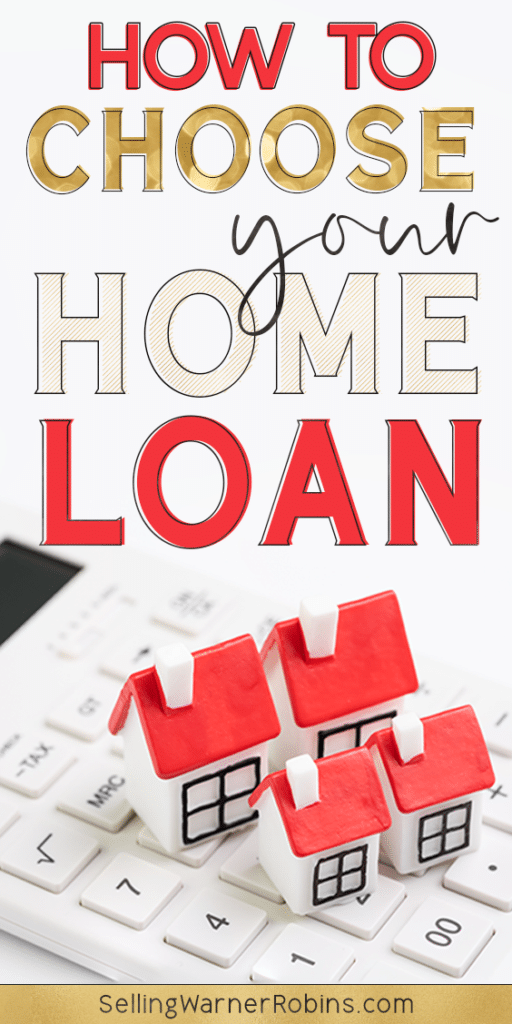
- A high down payment of at least 10 to 20% is required
- Most lenders require a credit score of 700, but some lenders will accept a minimum score of 660
- The debt-to-income ratio must be below 45%
- The home buyer must show significant assets, generally 10 percent of the loan amount in cash reserves or savings accounts
Who is the Best Candidate for a Jumbo Mortgage?
Ideal jumbo loan qualifiers are affluent home buyers looking to buy an expensive home. These affluent buyers must prove excellent credit, high monthly income, and substantial down payment.
Government-Insured Loans
While the US government isn’t a mortgage lender, many government agencies help Americans secure a home. These include the:
- Federal Housing Administration (FHA loans)
- U.S. Department of Veterans Affairs (VA loans)
- U.S. Department of Agriculture (USDA loans)
Let’s go through each one:
FHA Loans
First-time home buyers from low to moderate income households will typically get an FHA loan if they don’t qualify for a conventional loan. FHA doesn’t provide the loans directly to borrowers –– rather, they guarantee loans by FHA-approved lenders.
Compared to conventional loans. FHA loans have more lenient qualifications and down payment requirements.
To qualify for FHA maximum financing of 96.5% and 3.5% down payment, you will need to provide a minimum FICO score of 580. However, you can still get an FHA loan with a 500 credit score and 10% down payment.
With an FHA loan, home sellers are allowed to contribute to closing costs.
However, a drawback is that borrowers are required to get a MIP which includes upfront and annual fees until the loan closes.
VA Loans
The US Department of Veteran Affairs offer low-interest and flexible loan products for qualified military service members, veterans, and their families.
Borrowers of VA loans can finance the entirety of the loan amount with no down payment and mortgage insurance required. Closing costs are also typically capped and paid for by the seller.
However, VA loans do require a funding fee as a percentage of the loan amount to offset the cost to tax payers. Funding fees depend on their military service category and the loan amount.
Closing fees and funding fees can be paid upfront at closing, or they can be integrated in the loan amount.>
VA loans are best suited for active military personnel or veterans and their spouses who want to access highly competitive loan products that meet their financial needs.
USDA Loans
USDA loans are ideal for low to moderate income buyers in USDA-eligible rural areas nationwide. USDA loans require little to no down payment from borrowers, on the condition that the property meets the USDA eligibility rules.
This type of loan is ideal for home buyers in USDA-eligible rural areas who don’t qualify for a conventional loan. These buyers typically have low household income and not enough money for a downpayment.
Advantages of a Government-Insured Mortgage
- Allows home buyers to finance a home when they don’t qualify for a conventional loan
- Don’t require a large down payment
- Credit requirements are more attainable
- Available for first time and repeat home buyers
Disadvantages of a Government-Insured Mortgage

- Some loans require mandatory mortgage insurance premiums
- Higher borrowing costs in some cases
- More documentation required depending on the loan type
Who is the Best Candidate for a Government-Insured Mortgage?
Government-insured loans are best for low to moderate income households with less than ideal credit scores. These borrowers typically do not qualify for a conventional loan.
Fixed-Rate Mortgage
Lenders determine the price of your loan and interest rate based on your mortgage terms, including the duration of repayment.
Fixed-rate loans have a set interest rate for the life of the loan, which typically ranges between 10 to 30 years.
Shorter loans between 15 to 20 years allow home owners to pay off the equity faster because they can afford a higher monthly payment. These shorter fixed rate loans will help homeowners pay less interest.
A shorter fixed-rate mortgage is riskier since it requires higher monthly payments. You’ll need to review your budget if higher monthly payments are feasible –– taking into account your other financial goals, such as retirement savings and an emergency fund.
Advantages of Fixed-Rate Mortgages
- Monthly principal and interest remains the same throughout the life of the loan
- Helps borrowers to budget expenses per month
Disadvantages of Fixed-Rate Mortgages
- Longer loans require higher interest rates
- Interest rates are higher than adjustable-rate mortgages
Who is the Best Candidate for a Fixed-Rate Mortgage?
Fixed-rate mortgages are ideal for home buyers who plan to stay put in their homes for many years. A 30-year mortgage plan allows homeowners much room to meet their other financial needs. A shorter mortgage is ideal for those who want to shave off a portion of the interest and can afford higher monthly payments.
Adjustable-Rate Mortgage
Adjustable-rate mortgages (ARM) are given a fixed-rate for an initial period of up to 10 years. After that period, the rates will fluctuate depending on the market conditions. Adjustable-rate mortgages are riskier than fixed-rate mortgages because you may be unable to fulfill the higher monthly payments once the period resets and becomes a variable interest rate.
Most ARMs have a monthly cap which states that your mortgage payment can’t exceed a specified amount. This helps borrowers budget and plan up to any potential situation when their monthly payment reaches that point.
Advantages of Adjustable-Rate Mortgages
- Low interest rate for the initial years of homeownership
- Potential to save thousands of dollars on interest payments
Disadvantages of Adjustable-Rate Mortgages
- May result in homeowners being unable to pay the loan when interest rates increase
- If property values fall in a few years, homeowners will find it difficult to refinance or sell the home before the loan resets
Who is the Best Candidate for an Adjustable-Rate Mortgage?
Borrowers who are comfortable with a certain level of risk can get an ARM. This type of loan has the potential to save you thousands if you don’t plan on living in your home for long.
Other Home Loan Types
In addition to the five most common home mortgages I explained, you may be interested in these loans:
Construction Loan
Homeowners who are interested in building a new home can get a construction loan.
Homeowners can choose to get a separate mortgage to pay for the construction project and another one to pay off that mortgage. Some will prefer to integrate the payments in one mortgage.
In general, lenders will ask for a higher down payment and documentation to qualify for a construction loan.
Balloon Mortgage
You may also get a balloon mortgage which involves paying the bulk of the loan when the loan term closes.
Balloon mortgages are a type of short term fixed-rate home loan that typically lasts between 5, 7, and 10 years.
This loan is ideal for homeowners who plan on selling the home before the loan term expires, or for those who get large bonuses but a moderate salary.
Interest-Only Mortgage
This type of loan involves paying only the interest on the loan during a set period. Once the period is over (typically between five to seven years), it will be time to pay for your monthly principal.
This type of loan is ideal for homeowners who are planning to sell or refinance the home once the set period is over. It’s also ideal for homeowners who are expecting to afford higher monthly payments later on.
Final Mortgage Home Loan Tips
With the wide selection of home mortgage products, finding the best one for you can be overwhelming.
That is especially true if it is your first time buying a home, I recommend approaching a professional to walk you through the process before you do anything else.
Mortgage Home Loan Tips
About Anita Clark Realtor
Anita Clark has written 646 posts on this blog.
by Anita Clark Anita is a residential Real Estate Agent in Warner Robins Georgia, with Coldwell Banker Access Realty (478) 953-8595, aiding buyers and sellers with all their real estate questions on her Warner Robins blog.
